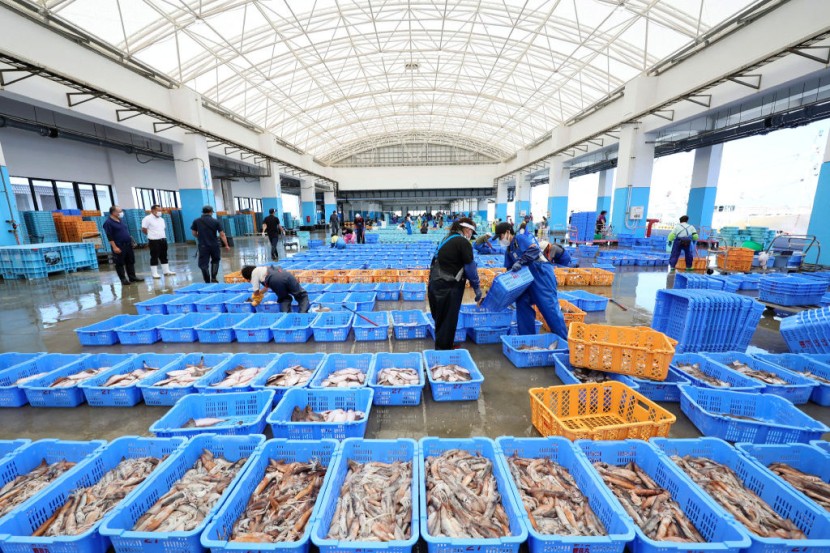The Group of Seven (G7) industrial powers have issued a statement urging for the "immediate repeal" of import restrictions on Japanese food products.
This refers to China's imposition of curbs following Japan's decision to release wastewater from the Fukushima nuclear power plant, as per Rauters.
G7 Trade Ministers Tackle Economic Concerns

The G7 trade ministers recently convened for a weekend meeting in Osaka, where they issued a statement that didn't explicitly mention China but made their concerns about its economic practices clear.
The information, spanning 10 pages, deplored actions that have the potential to weaponize financial dependencies and underlined their commitment to fostering free, fair, and mutually beneficial economic and trade relationships.
China's suspension of Japanese fish imports two months prior directly responded to Japan's release of treated radioactive water from the damaged Fukushima plant into the Pacific Ocean.
China deemed the G7's response "economic coercion" and urged the group to refrain from double standards while taking practical steps to maintain average international trade and investment order.
The G7, composed of the United States, Japan, Germany, Britain, France, Italy, and Canada, also expressed concerns regarding recent control measures on importing critical minerals. In particular, China, the world's leading graphite producer, had implemented export restrictions on certain graphite products to maintain control over essential mineral supplies and address challenges to its global manufacturing dominance.
Yasutoshi Nishimura, the trade minister of the host nation Japan, emphasized the need for a genuinely strong strategy to reduce dependence on a single country for critical resource supplies. The trade ministers unanimously agreed on building resilient and reliable supply chains for necessary minerals, semiconductors, and batteries, according to South China Post.
Non-Market Policies
Additionally, the G7 ministers reiterated their concerns about a comprehensive and evolving range of non-market policies. These concerns encompassed pervasive, opaque, and trade-distortive industrial subsidies, as well as forced technology transfer, which they view as practices that undermine fair competition in international trade.
On the subject of Russia, the G7 officials strongly condemned Russia's actions in its invasion of Ukraine. They specifically addressed the destruction of Ukrainian grain export infrastructure during the conflict and Moscow's unilateral decision to withdraw from an agreement that had permitted Ukraine to export wheat and other products through the Black Sea.
Notably, unlike the G7 finance ministers' meeting two weeks earlier, the trade ministers refrained from mentioning the Middle East crisis explicitly. Instead, they focused on the challenges of moving humanitarian goods across international borders during natural disasters and other emergencies.
While Western countries have generally supported Israel's right to self-defense, there has been growing global concern over the toll resulting from Israel's military actions in Gaza. There are increasing calls for a humanitarian pause to facilitate aid delivery to Palestinian civilians in the affected territory, The Straits Times reported.
Related Article : Should Hamas Hostages' Families Rely on Phone Pings for Proof of Life?
© 2025 HNGN, All rights reserved. Do not reproduce without permission.








